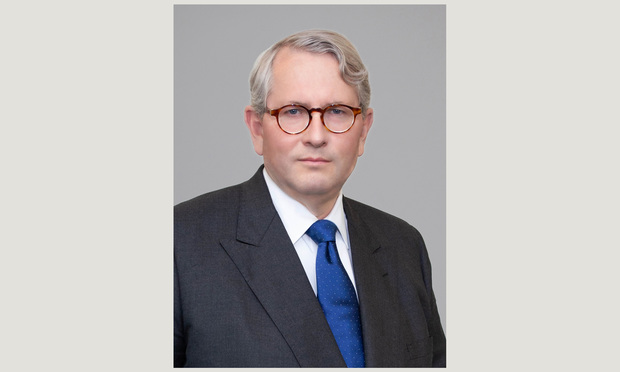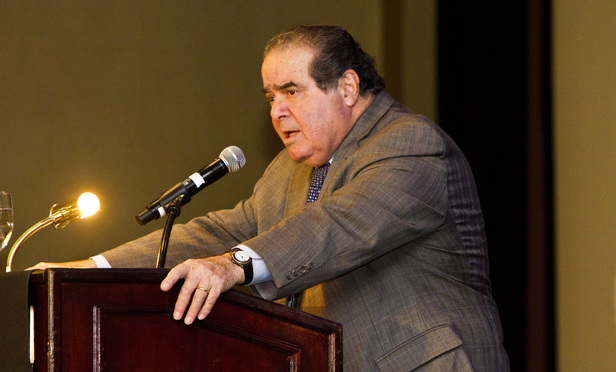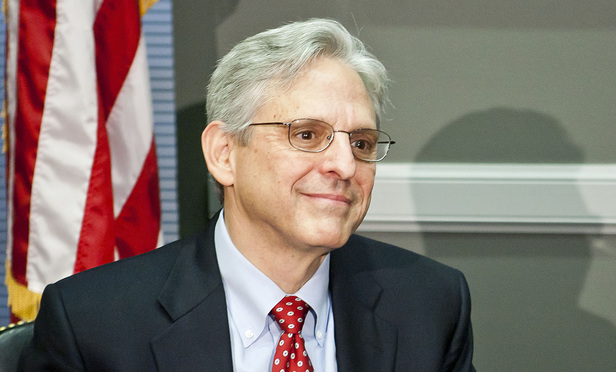Julian D Perlman

June 06, 2022 | The Legal Intelligencer
Federal Trade Commission Investigating Ongoing Baby Formula ShortageThe FTC is hoping to unearth the factors that have contributed to the consolidation of the baby formula market and the pertinent issues with the supply chains for baby formula.
By Carl W. Hittinger and Julian D. Perlman
6 minute read

April 22, 2022 | The Legal Intelligencer
Continued Antitrust Focus on the Labor Market in the Wake of 'NCAA v. Alston'Almost a year old, Alston's repercussions continue to be felt, far outside of the confines of sports. Its holding has impact even in the world of criminal justice, and it will continue to be front and center with the renewed antitrust focus on labor markets.
By Carl W. Hittinger and Julian D. Perlman
8 minute read

June 24, 2021 | The Legal Intelligencer
US Supreme Court Reins in the NCAA in Narrow RulingOn June 21, the U.S. Supreme Court handed down its decision in NCAA v. Alston, an antitrust case that tested the limits on the NCAA's power to cap compensation to college athletes. The unanimous opinion, written by Justice Neil Gorsuch, begins with a detailed history of the interplay between two colliding forces (revealing the prism through which the court viewed the issues): money and college amateur athletics.
By Carl W. Hittinger and Julian D. Perlman
10 minute read

April 12, 2021 | The Legal Intelligencer
High Court Hears Argument in Historic NCAA Antitrust Case on College Athlete CompensationIn this article, we discuss the arguments made by counsel for the National Collegiate Athletic Association (NCAA), and questions posed by the justices.
By Carl W. Hittinger and Julian D. Perlman
8 minute read

February 26, 2021 | The Legal Intelligencer
Use of Special Masters in Pandemic's Wake—Mitigating a Looming Civil Justice CrisisA civil justice crisis still looms. Federal and state courts that were already underfunded, overworked, and faced unfilled vacancies before the pandemic now face additional judicial vacancies and layoffs of judicial personnel, budget shortfalls and lengthy courthouse shutdowns because of the still ongoing pandemic.
By Carl W. Hittinger and Julian D. Perlman
7 minute read

September 30, 2016 | The Legal Intelligencer
The Antitrust Point of View of Hillary ClintonIn our last article we examined Donald Trump's experience as an antitrust defendant. In this article, we examine the Presidential candidate at the other podium on the debate stage. Unlike Trump, Hillary Clinton has not been a defendant in an antitrust lawsuit (or several times as the case may be with Trump). Further, unlike Trump, the Democratic candidate has made numerous statements that reflect what a Hillary Clinton presidency could mean for competition and consumers.
By Carl W. Hittinger and Julian D. Perlman
14 minute read

August 01, 2016 | The Legal Intelligencer
Donald Trump's Antitrust Entanglements: Part 2At the Republican National Convention, Donald Trump spoke approvingly of late Supreme Court Justice Antonin Scalia as a model for future Supreme Court nominees. We have previously written about the potential impact Scalia's death may have on the Supreme Court. In particular, we noted Scalia's reluctance to find antitrust violations even where judges and juries—triers of fact presented with all of the evidence—reached opposite conclusions in the rare antitrust case to go to judgment or verdict. This may not be surprising to some given Scalia's public statements that he never "understood" antitrust law "because it did not make any sense." Trump has been through the antitrust grist mill on several occasions, which may have shaped his own view as to whether the antitrust laws make any sense.
By Carl W. Hittinger and Julian D. Perlman
17 minute read

June 06, 2016 | The Legal Intelligencer
Antitrust, Appointments and Presidential Front-Runners: Part 1Substantial and substantive issues of national importance are often obscured by the usual myopic and frenzied focus on political talking points, sensational sound bites and collateral name-calling.
By Carl W. Hittinger and Julian D. Perlman
6 minute read

May 01, 2016 | The Legal Intelligencer
Scalia's Antitrust Legacy: Part 2, The Dissenting OpinionsIn March, we wrote about Justice Antonin Scalia's three majority opinions in substantive antitrust cases. Notably, Scalia also authored three dissenting opinions in substantive antitrust cases, in rapid-fire succession in 1991, '92 and '93. In the majority opinions, Scalia seized upon alternative, innocuous explanations for alleged anticompetitive conduct, even when an anticompetitive motive was equally if not more plausible, and in two cases reversed jury verdicts for plaintiffs. In the dissents, Scalia's skepticism regarding the antitrust laws is even more evident: Scalia does not attempt to explain away what some (including two juries) characterized as anticompetitive conduct, as in the majority opinions; rather, he recognized and accepted plaintiffs' characterizations of defendants' conduct (as required by the posture of the cases), but concluded that even so, plaintiffs could not find a remedy in the antitrust laws. Furthermore, in each dissent, he also would have had the court reverse the U.S. Court of Appeals for the Ninth Circuit and affirm the particular California federal district court in the case, and grant judgment for defendants on the pleadings or on summary judgment.
By Carl W. Hittinger and Julian D. Perlman
8 minute read

April 02, 2016 | The Legal Intelligencer
Supreme Court Nominee Garland: An Assessment of Antitrust ExpertiseLast month, our antitrust column was devoted to the late Justice Antonin Scalia's antitrust legacy on the U.S. Supreme Court, focusing on his three antitrust opinions for the majority. At that time, we promised to continue that analysis, focusing this month on Scalia's many antitrust dissents. However, history intervened and President Obama nominated Chief Judge Merrick Garland of the U.S. Court of Appeals for the District of Columbia Circuit to replace Scalia. In the wake of that controversial nomination, Garland has been subsequently heralded by some commentators as an antitrust expert who may have an important impact on antitrust cases before the high court. While Garland certainly has experience with antitrust matters, he has not said he is an antitrust expert. Indeed, we respectfully would not go so far as to classify him as an antitrust expert, as was, for example, Justice John Paul Stevens before he was elevated to the Supreme Court. (See "Before Joining Bench, Stevens Molded Antitrust Law," published May 4, 2010, in The Legal.) This article focuses on the substantive antitrust opinions in which Garland has joined or which he authored during his tenure on the D.C. Circuit since 1997.
By Carl W. Hittinger and Julian D. Perlman
15 minute read
Trending Stories
- 1LexisNexis Announces Public Availability of Personalized AI Assistant Protégé
- 2Some Thoughts on What It Takes to Connect With Millennial Jurors
- 3Artificial Wisdom or Automated Folly? Practical Considerations for Arbitration Practitioners to Address the AI Conundrum
- 4The New Global M&A Kings All Have Something in Common
- 5Big Law Aims to Make DEI Less Divisive in Trump's Second Term



